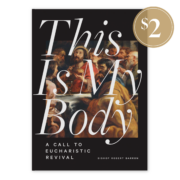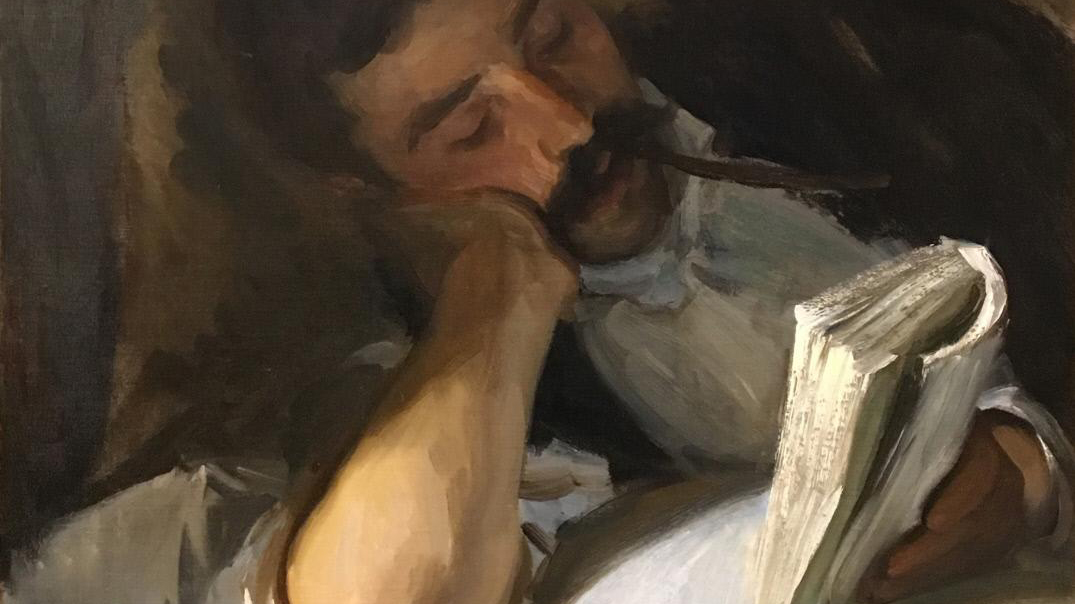The world of books is as deep as it is wondrous. It’s amazing how books written centuries ago can still start a spark in our modern minds. C.S. Lewis once said, “It is a good rule after reading a new book, never to allow yourself another new one till you have read an old one in between.” We asked our writing team to consider a book not published in the last century that has most impacted their life. Today, Matt Becklo discusses one of the leading existentialist philosophers, Soren Kierkegaard’s selection of essays entitled Papers and Journals, which led Matt into a deeper understanding of Christ.
I don’t remember how the Penguin Classics collection of philosopher Søren Kierkegaard’s Papers and Journals ended up in my possession. But what I can never forget is just how much it changed the course of my life.
I first read Kierkegaard in high school after picking up Walter Kaufmann’s Existentialism from Dostoevsky to Sartre at a local bookstore. I didn’t know a whole lot about existentialism at the time, but I knew that philosophy dealt with questions about existence. I was starting to think seriously about those questions, so existentialism seemed like an obvious place to start. The excerpts from Nietzsche and Dostoevsky were electrifying, but it was Kierkegaard that really stuck with me. Here was the model philosopher, a solitary individual who unleashed the full fervor of his mind against the untruths of “the crowd.” He had a fierce spiritual sense that cut through conventional religiosity like a hot knife, and he reflected as passionately about reflection as he did about life itself. He was fascinating to read.

When I picked up Kierkegaard’s Papers and Journals as a college student, I quickly went from fascinated to fervent. The intellectually serious philosophy I had been reading seemed to lack the drama of the absolute, and at the time, I saw the absolutes of religion as lacking intellectual seriousness. But Kierkegaard had both in spades. And while Kierkegaard the writer can be dizzying (he often wrote under various pseudonyms and through irony, satire, and indirect communication), I found this collection of brief journal entries very readable and accessible, and kept returning to it again and again.
There was something about Kierkegaard’s anguished personality that captured my attention as well. His journals are rife with the anxiety and dread that inspired some of his classic works. “The whole of existence makes me anxious, from the smallest fly to the mysteries of the Incarnation,” he writes in one entry. “Great is my distress, unlimited.” His anxiety is outmatched only by the melancholy he inherited from his devout father. Kierkegaard proposed to Regine Olsen in 1840, but suddenly and mysteriously broke off the engagement less than a year later—and many suspect it was his “faithful mistress” of melancholy that led to the decision.
I felt myself called to think with the mind of the Church and enter into its mission.
That was Kierkegaard’s first decisive break with a customary life in Denmark, but certainly not his last. His journals also reveal the two main antagonists that motivated him as a writer: Hegel, an influential philosopher in Danish academia that he saw as living in a shack outside of his own intellectual castle, and the “Christendom” of the Danish Church, which he saw as spiritless and out of touch with Christian revelation. Watching Kierkegaard take aim at these targets with his call for total personal commitment helped me understand what his corpus was all about and why it played such a key role in the history of existentialism.
But what intrigued me most about the journals was Kierkegaard’s fiery indictment of the press and “the public” between 1846 and 1847 after he had been viciously lampooned in a satirical paper. “There was no public in antiquity,” Kierkegaard wrote bitterly, “not in passionate times (then it was the nation, parties, and so on, i.e. full-bodied individual associations of active people). The public is a creation of the press when the latter alone is to be active in a passionless age.” These entries led me directly to Two Ages: A Literary Review, Kierkegaard’s assessment of the modern zeitgeist. Where earlier ages were defined by passion, devotion, and decisive action, he argues, the present age is defined by reflection, superficiality, and an “instant publicity” that “levels” the individual. I was so taken by these arguments and their parallels with the internet age that I decided to write my undergraduate thesis—as an English major, no less—on them.
But Kierkegaard’s Papers and Journals did more than draw me deeper into philosophy. Indirectly, it also drew me back into my Catholic faith.
At first glance, this seems like some kind of mistake. Kierkegaard was a man of faith, but his radical emphasis on subjectivity and the absurd are far from Catholic tradition. Peter Kreeft, a philosopher and convert to Catholicism from Calvinism, recalls: “The only person who almost kept me Protestant was Kierkegaard. . . . [He] offered a brilliant, consistent alternative to Catholicism, but such a quirkily individualistic one, such a pessimistic and antirational one. . . . ”
What linked Kierkegaard to my Catholic upbringing was a chance encounter with Walker Percy’s Lost in the Cosmos. I knew Percy was Catholic, so when I first opened his self-help satire, the epigraph from Nietzsche threw me for a loop. (What business does a Catholic writer have agreeing with Nietzsche on anything?) As I kept reading, Percy surprised me again. The book was bizarre and brilliant but also wise. He had a wry Kierkegaardian perspective on the derangement of modern life—its scientism, spirituality, morality, consumerism, and entertainment—and the spiritual malaise that both fed it and was fed by it. (Percy, I later learned, was best known for his 1961 novel The Moviegoer, which opens with a quotation from Kierkegaard on despair and draws inspiration from the philosopher throughout.)

But the influence of Kierkegaard on Percy was more than philosophical; it was also religious. Percy, a Columbia-trained physician and former agnostic, cited Kierkegaard’s essay “The Difference between a Genius and an Apostle” as a key reason for his conversion to Catholicism in 1947. There were other elements in place when he read Kierkegaard—his family history of depression, his reading of Aquinas, his memories of a roommate going to Mass, his love for literature and linguistics—just as there were other elements in place for me when I stumbled on Percy. But Kierkegaard’s essay was the spark that lit the fire. Man is not an organism or a consumer, Percy saw, but a wayfarer, a castaway looking for “news from across the seas”—and the apostolic faith was that good news. Ultimately, as a Catholic, Percy came to see faith as a form of knowledge, and the Church as the sacramental bearer of this scandalous knowledge to the world. On these points, he parted ways with his great teacher. But in his writings, he continued to present his Catholic faith in a Kierkegaardian way, which in turn eventually sparked a flame still smoldering in my own soul. More than ever, I felt myself called to think with the mind of the Church and enter into its mission.
Kierkegaard is not regarded by most academics as a particularly important or serious figure. At best, he is a footnote to Hegel; at worst, a writer that only an angsty teenager could find valuable. (Before becoming a filmmaker, Terrence Malick wanted to write a doctoral thesis on the concept of “the world” in Kierkegaard and others. His adviser Gilbert Ryle told him that he should work on something more “philosophical.” He didn’t listen.) But sometimes things look right-side up only because the world itself is upside down. Kierkegaard’s work is a call to search for the great hidden truths of your life on earth, not simply accept the surface truths pronounced to you by “the experts”—and nothing in all of philosophy could be more important or serious. The angst of Kierkegaard’s Papers and Journals caught my attention as a teenager, but not simply because I was an angsty teenager. It was because, in my angst, I had started to embark on that search.
And with the help of Kierkegaard and eventually Percy, the search led me back toward Catholicism and its founder, the person Kierkegaard in his journals called “truth absolutely”: Jesus Christ, the shepherd to the lost sheep of the cosmos.
This piece was originally published on October 17, 2017 on WordonFire.org.
